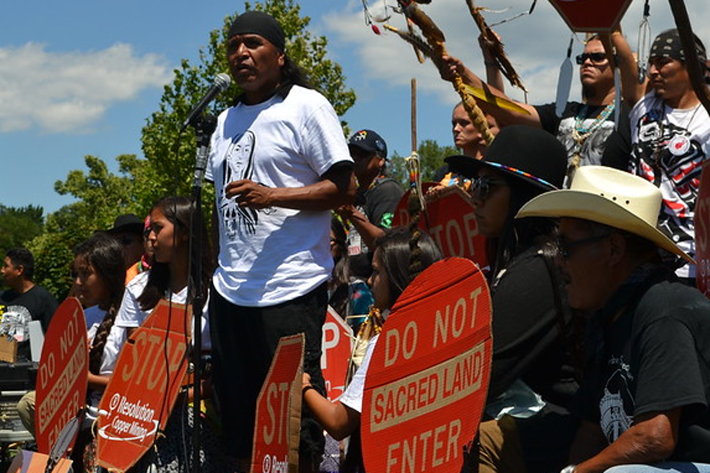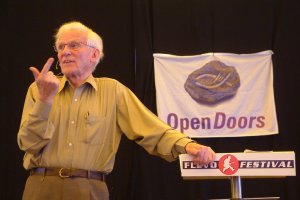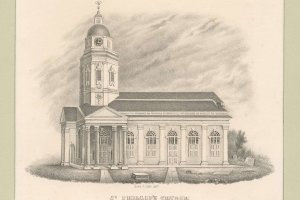Gerald Groff routinely took Sundays off from his part-time mail carrier job at the U.S. Postal Service to observe the Sabbath. The evangelical Christian and former missionary had no problem with employers or co-workers, as there was no Sunday mail delivery. But then, less than a year into his employment, the Postal Service contracted with Amazon to deliver packages on Sundays. A year later, the postal workers union informed Groff he would have to be available for Sunday shifts.

Groff, however, continued to observe the Sabbath, and his absences had a ripple effect. Other carriers had to fill in for him, some transferred or quit, and tensions in the workplace rose.
Ultimately Groff quit and filed a religious discrimination lawsuit. After losing in the lower courts, his case—Groff v. DeJoy—is at the high court. The centerpiece of the case is Title VII of the Civil Rights Act, which prohibits religious discrimination in the workplace and requires employers to “reasonably accommodate” an employee’s religious observance unless that accommodation would impose an “undue hardship” on the business. In 1977, in Trans World Airlines v. Hardison, the court defined such a hardship as an accommodation that would impose more than a minimal burden, or “de minimis cost” on the company’s operations.
While Groff’s legal team wants the justices to overrule the 1977 decision, the court appears to be leaning toward a compromise.
Justices Brett M. Kavanaugh and Amy Coney Barrett joined the court’s liberal wing in suggesting that co-worker morale should be considered when weighing the consequences of an accommodation on a business.
“Anyone running a business in America knows that morale of the employees is critical to the success of the operation,” Kavanaugh said.
Barrett, agreeing, offered a scenario wherein many observant Christians at the same workplace require the same Sabbath accommodation, thus causing confusion and hardship.
“The employer has to wait until morale is so bad that employees actually quit?” she asked Groff’s lawyer, Aaron Streett.
Streett argued that accommodations for one’s religious observances should be treated the same as allowances for disability and pregnancy. Under the current standard, he said, a diabetic employee could receive snack breaks but not prayer breaks. A pregnant employee could receive weekly leave for medical checkups, even if that required changing a co-worker’s preferred shift. But the same employee could not get weekly leave to attend worship services if it would have a similar impact.
“There’s no reason religious workers should receive lesser protection than those covered by other accommodation statutes,” he said.
At first, given the court’s recent record of tending toward religious accommodation—siding, for example, with the public high school football coach penalized for postgame prayers on the field and with a Christian group that wanted to fly its flag at Boston’s city hall—there was reason to believe the court would also side with Groff’s position, and strike down the 1977 decision.
But despite Justice Samuel Alito’s assertion that the 1977 decision was dead wrong—citing the multifaith briefs filed by Muslims, Hindus, Orthodox Jews and Seventh-day Adventists, among others, supporting Groff—Alito appears to be in the minority. The majority—conservatives and liberals—favor a more case-by-case application of Title VII and the 1977 precedent.
Justice Sonia Sotomayor pointed out that it depends on the situation and workplace. “What’s clear to me, after all this discussion, is that, as much as some people might want to provide absolute clarity, there is none we can give,” she said. “Because it’s all contextual.”
Or as her colleague, Justice Neil Gorsuch, in suggesting the compromise, asked, “We all agree that’s wrong. Why can’t we just say that and be done with it and be silent as to the rest of it?”
_______________
From its beginnings, the Church of Scientology has recognized that freedom of religion is a fundamental human right. In a world where conflicts are often traceable to intolerance of others’ religious beliefs and practices, the Church has, for more than 50 years, made the preservation of religious liberty an overriding concern.
The Church publishes this blog to help create a better understanding of the freedom of religion and belief and provide news on religious freedom and issues affecting this freedom around the world.
The Founder of the Scientology religion is L. Ron Hubbard and Mr. David Miscavige is the religion’s ecclesiastical leader.
For more information visit the Scientology website or Scientology Network.


